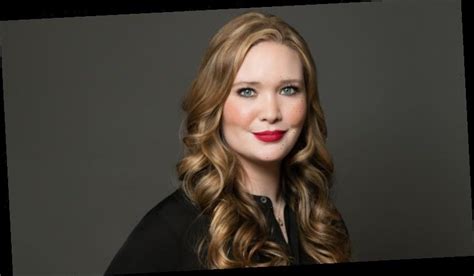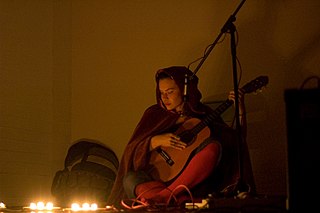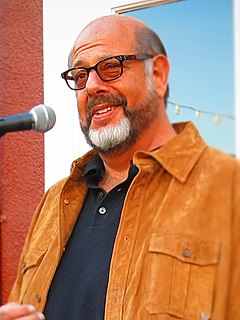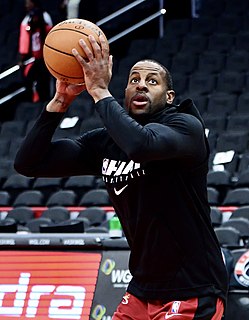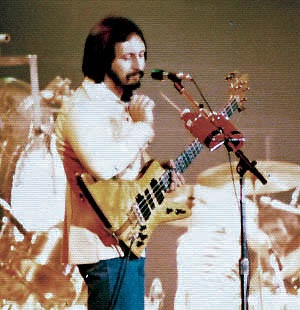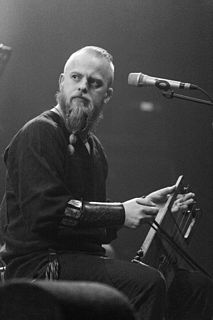A Quote by Roger Andrew Taylor
At some of the venues, the audience was so loud we could hardly hear what was happening on stage, which kind of threw us back to 1983, when we had very similar reactions on a much bigger scale.
Related Quotes
Since my 'Crown of Midnight' tour in 2013, we've had such a rapid jump in audience numbers that we've had to move to bigger venues, cap events, and find new and creative ways to keep the line flowing while still allowing me the chance to chat with each person, which will always be very, very important to me.
I could do another tour, make a record that's very similar, do similar venues. Or I could make a different record, do different venues, and grow. It's exciting to take it to new places, but it's never been my intent to be the biggest thing in the world. That's not what my drive is. I want to make what I want to make, and make a living off it.
I had a couple albums out that sold well for who I was at the time and the type of music I played. People started recognizing my name and face and it helped sell bigger venues. I had a bigger spotlight and I had to live up to it but I thrived under that challenge. It expedited the creative process. If I was on stage in front of 300 people instead of 30, I had to work harder at my performances because I had a greater responsibility. It was very exciting, but creative too.
I've always been curious about people's psychedelic experiences, and I kind of had this assumption that I was going to have some kind of crazy mindblowing psychedelia thing happening, but actually, it was very quiet, and I didn't have any hallucinations at all. Nothing changed, except that suddenly I could hear the voice of my conscience, which I didn't ever think of as being a real voice. And ever since having that experience, I've had that voice in my head and followed it occasionally.
I saw a video on YouTube of a girl who had very similar reactions to late-stage Lyme disease as I did. And I thought it was crazy. And when I saw her basically have a seizure on camera that looked very much like my seizure I felt, "Oh my god. That's me." And so it was really important to me, and I said to Sini, 'We have to find some way to not just talk about Lyme disease, but to show it.
I'm one of relatively few stage-trained actors who doesn't much like acting on stage. It feels kind of like riding the Cyclone at Coney Island, which I did when I was eight. When it was all over, I was glad I had done it, but most of the time when it was actually happening, I was just kind of hanging on for dear life.
Normally classical music is set up so you have professionals on a stage and a bunch of audience - it's us versus them. You spend your entire time as an audience member looking at the back of the conductor so you're already aware of a certain kind of hierarchy when you are there: there are people who can do it, who are on stage, and you aren't on stage so you can't do it. There's also a conductor who is telling the people who are onstage exactly what to do and when to do it and so you know that person is more important than the people on stage.
Disney is very much a child's theater - it's a very specific kind of acting. It's loud and boisterous with the goal to draw the attention of children and keep the attention of children, and it can kind of be cheesy and loud, and I had to unpack a lot of that, because as an actor, you kind of internalize, and you basically become a character.
With the exception of maybe Vegas or Miami once or twice, other than that, it's all the same to me. I can't hear anything in the club with the loud music, so you're in there, and you're like, 'I can't hear you because of the loud music.' I hate that, yelling back and forth. And I don't drink, so it's kind of pointless.
In regards to live shows, space is very important to me. Space and context should complement the music in some way; you gain so much from it. It enhances the dialogue between audience and performer. I'm very much aware of this when choosing venues. I say no to 90% of booking offers. Somehow I feel the venue needs to make sense.


